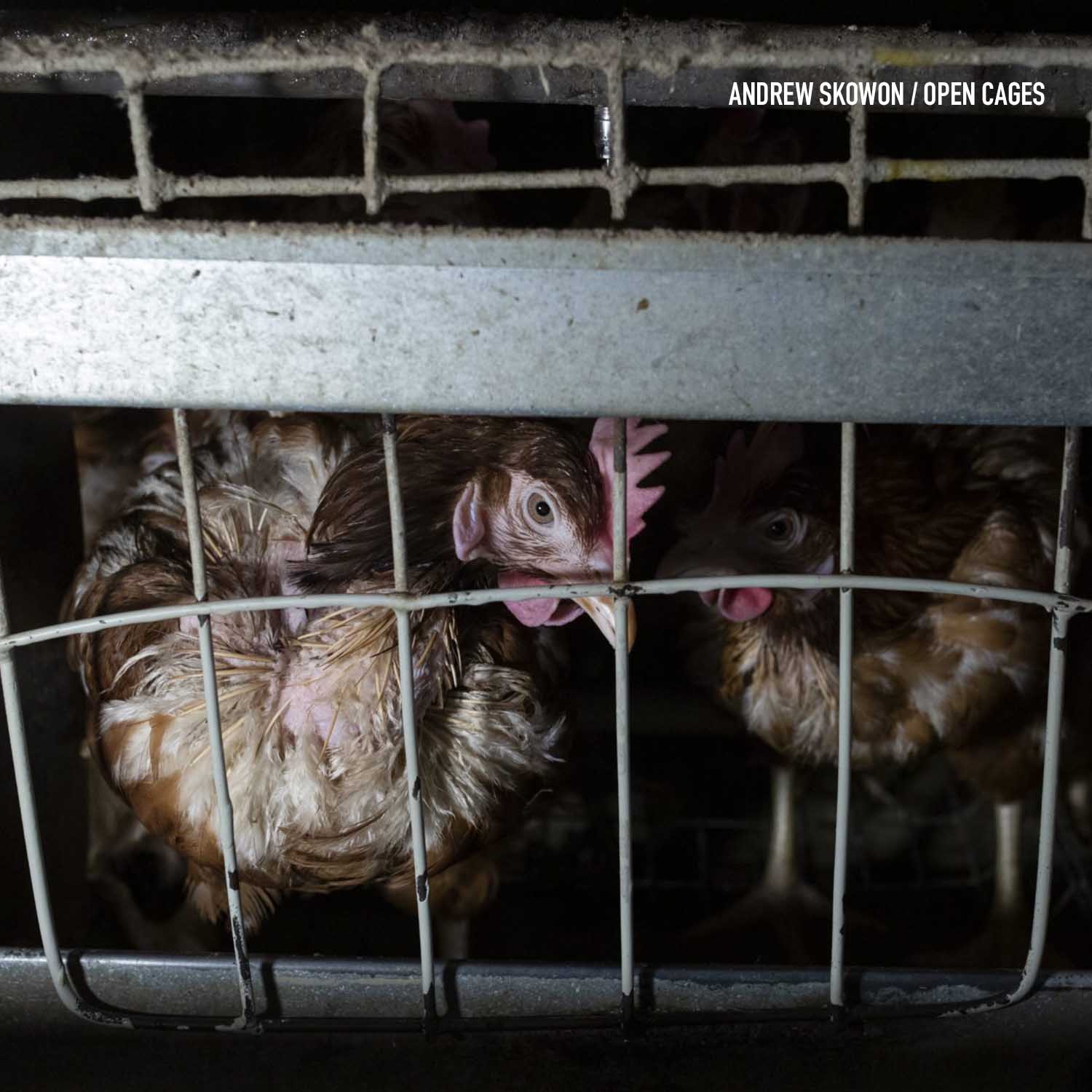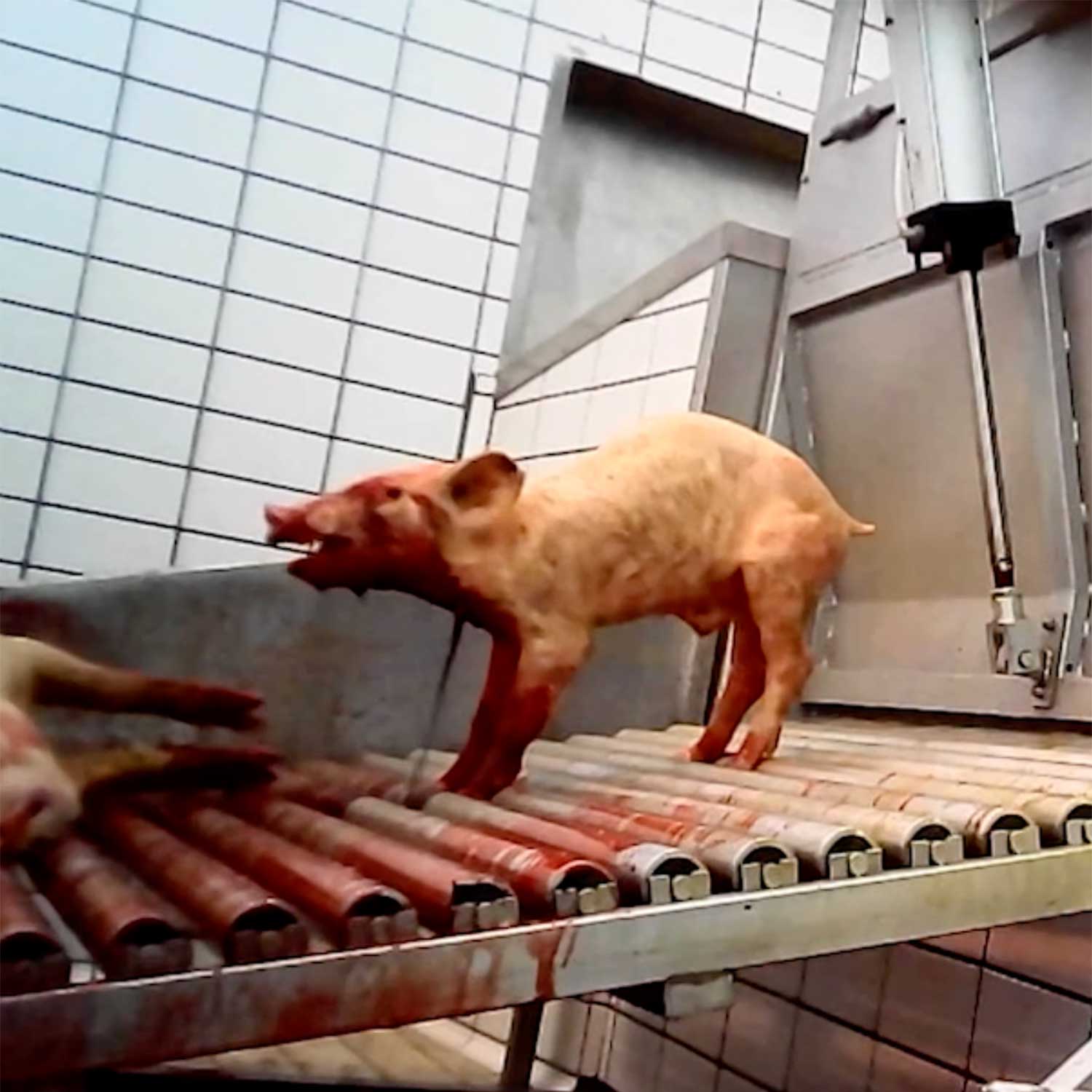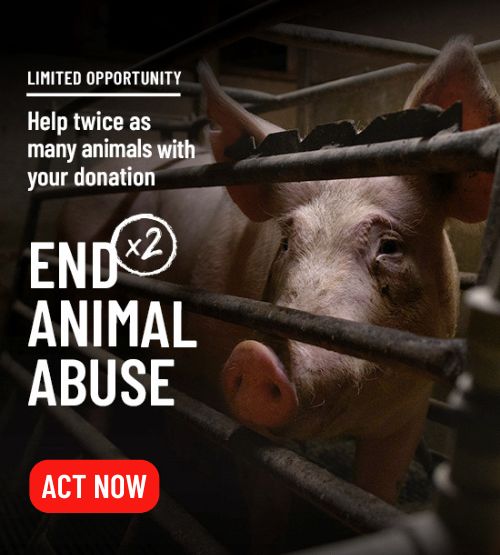Take Action: U.S. Salad Chains Receive an F on Animal Welfare
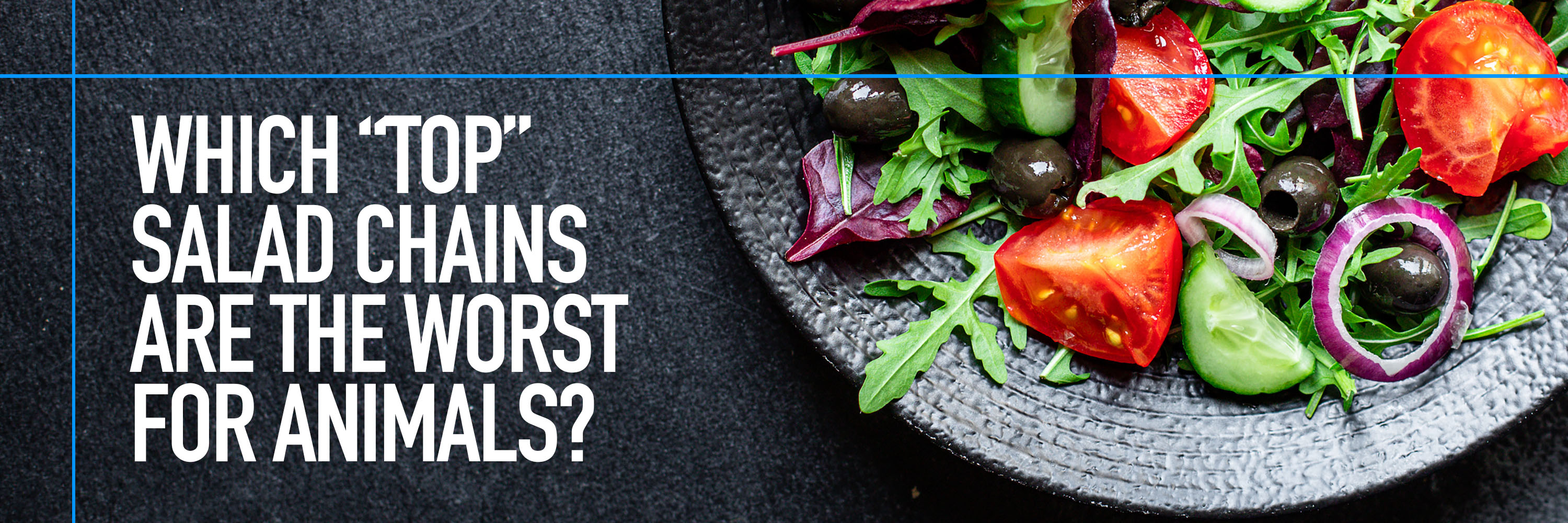

In a new campaign launched today, we look at ten of the top salad chains in the U.S. based on their commitments to animal welfare. More than half have no public animal welfare policies, failing the animals it uses as well as its customers.
Studies repeatedly show that Americans highly value animal welfare, often above all other issues. Salad chains such as Just Salad, Honeygrow, and Chopt are some of the companies in the sector that have incorporated animal welfare in their social corporate responsibility goals, while others have no public animal welfare policies.
MAD Greens, Salata, Chop Stop, Tender Greens, and Freshii have all refused to address the worst abuses endured by pigs, chickens, and hens, specifically by adopting a crate-free policy, the Better Chicken Commitment, and a cage-free egg policy. Sharon Núñez, President of Animal Equality described the disappointing results, “Customers going to salad chains are expecting high standards for animal welfare, but instead are purchasing products that are so cruel that they are illegal in many U.S. states.”
Without an established welfare policy for pigs, chickens, and hens, it’s likely that animals within these companies’ supply chains are forced to endure extreme suffering for its menu items:
- Restricting mother pigs to crates allows producers to maximize the number of animals that can be housed in a single barn. Female pigs give birth inside a tiny metal crate so small they can’t even turn around and are unable to nurture their piglets. Crates prohibit farmed animals from engaging in their instincts to forage, root, nest, and socialize, causing extreme stress and frustration. They are banned in nine states in the U.S. (Arizona, California, Colorado, Florida, Maine, Michigan, Ohio, Oregon and Rhode Island) as well as the United Kingdom and Sweden.
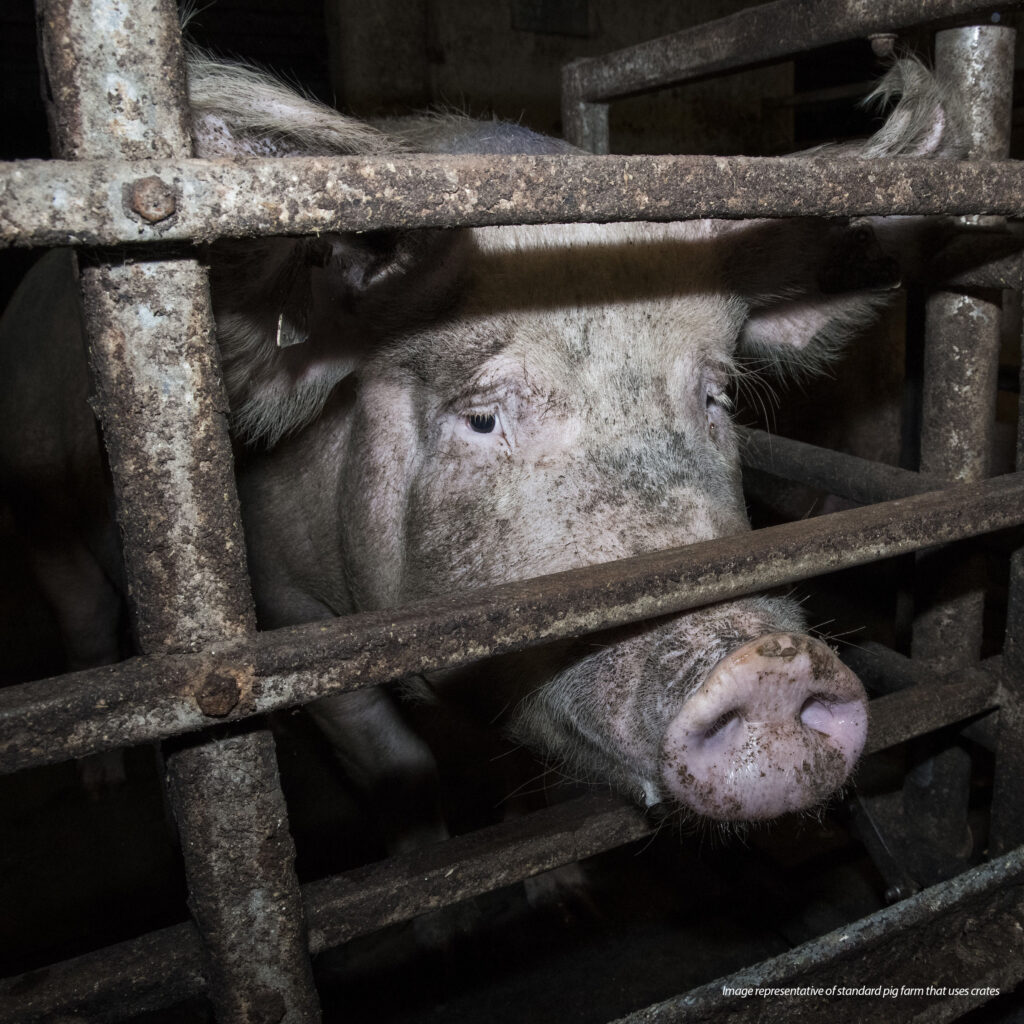
- The majority of chickens used for meat are raised in cruel, crowded, and barren conditions and suffer from extreme overbreeding and problematic slaughter methods. The Better Chicken Commitment addresses these problems and over 400 leading companies have already adopted the policy including KFC, Burger King, Chipotle, Starbucks, Compass Group, Whole Foods, HelloFresh, General Mills, Unilever, and Nestlé.
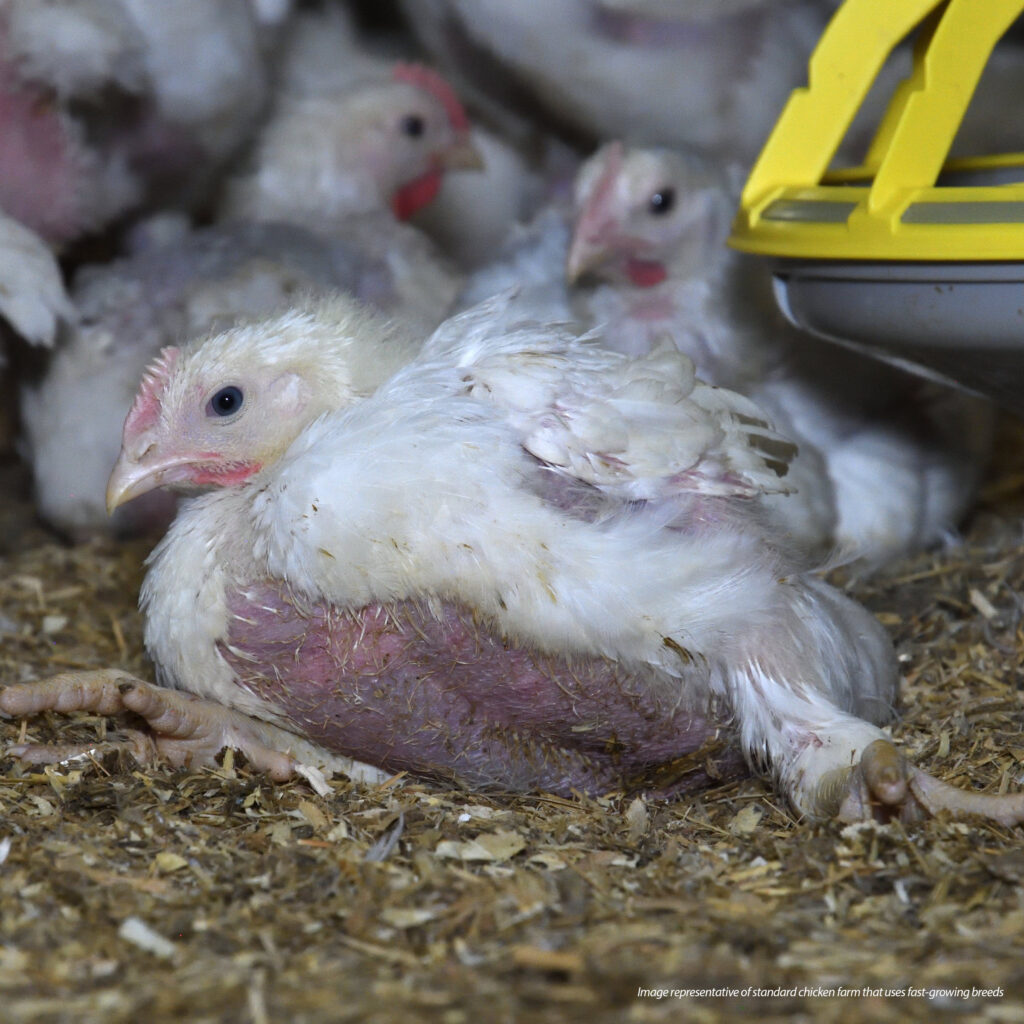
- Selectively bred to produce the maximum number of eggs, hens spend up to two years packed in wire cages with six other birds. The cages are so small and crowded that hens cannot even spread their wings or exhibit other natural behaviors. Fortunately, companies and consumers are driving a market shift to 100% cage-free eggs, recognizing the misery of hens living in barren, wire cages. Nine U.S. states have banned cages for hens, including Nevada, Utah, Colorado, Michigan, Washington, Oregon, California, Massachusetts and Rhode Island.
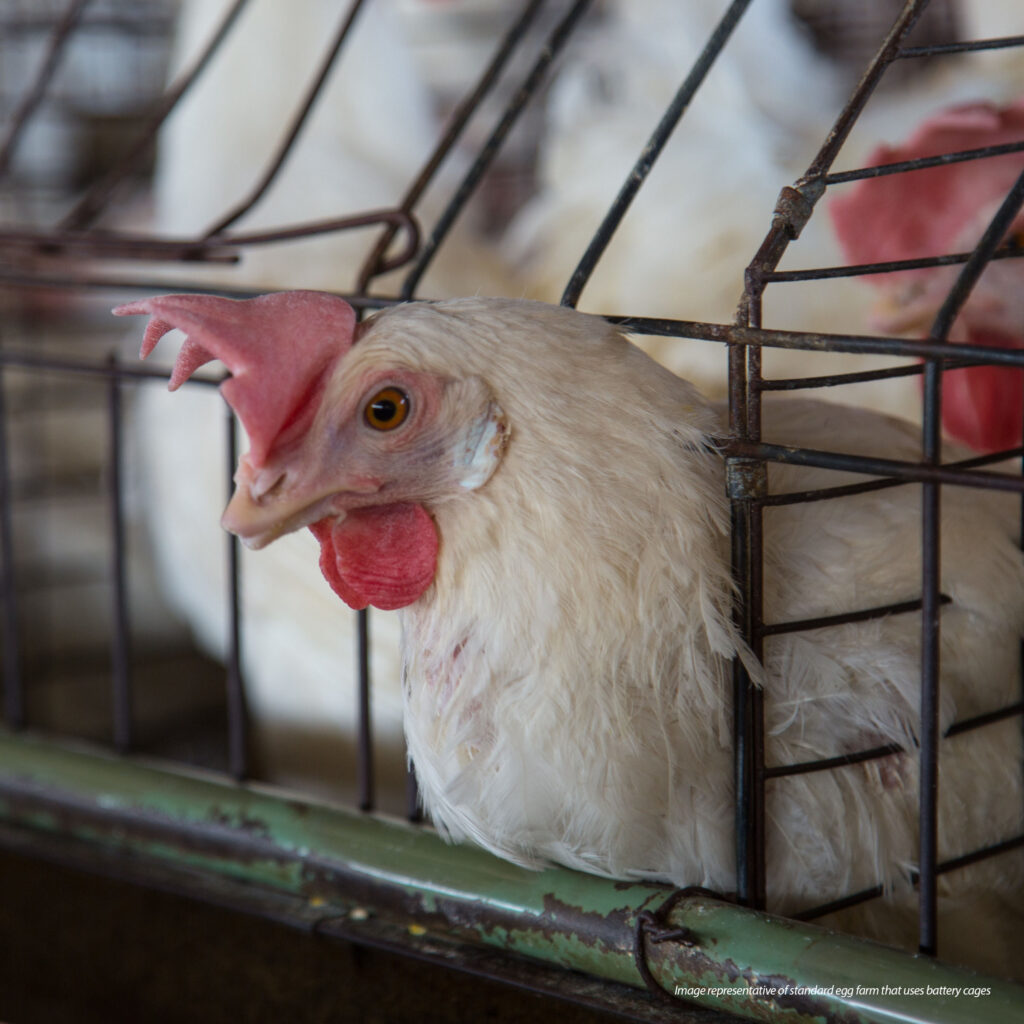
Because consumers are driving this change toward improvements for animals used for food, you now have a unique opportunity to add your voice and ask companies that are allowing extreme animal cruelty to raise their standards at SaladChainCruelty.com.

